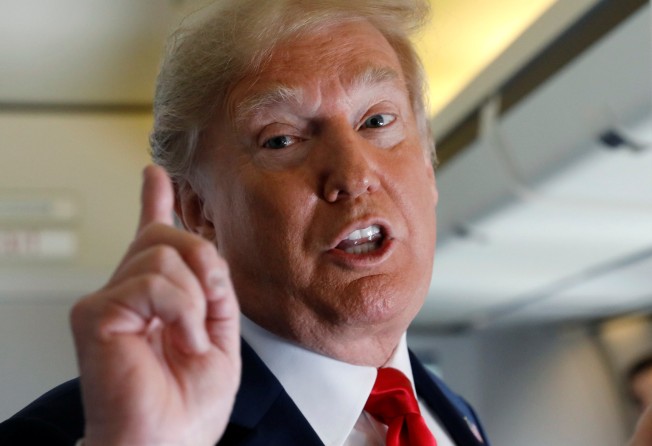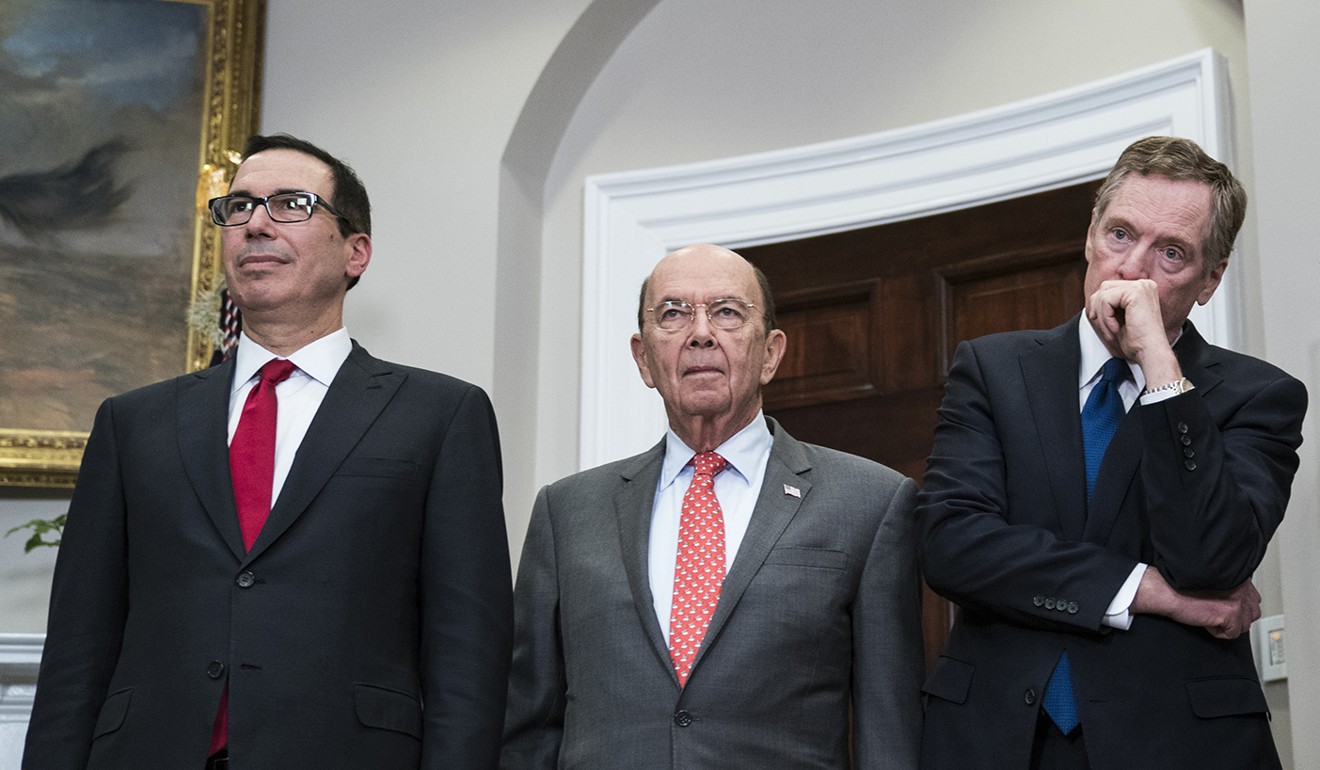Former US trade representatives agree: they wouldn’t do it Donald Trump’s way
Six former lead US negotiators dissect the Trump administration’s approach to China and other trade partners and find it potentially catastrophic

Former United States trade representatives (USTRs) on both sides of the political aisle heaped scorn on the Trump administration’s approach to global trade, even as the government prepared to slap another round of import tariffs on Chinese products.
At a discussion hosted by the Washington-based Centre for Strategic and International Studies on Monday, six former chief US trade negotiators decried the protectionist trade policies the administration of US President Donald Trump is pursuing and warned of the catastrophic effect they could have on the US position in the global economic order.
For the first time in 70 years, Americans had found themselves the “outliers” on the world trade stage, said Michael Kantor, who served as US trade representative in the Clinton administration from 1993 to 1996.
“We’ve lost leadership,” said Kantor, who led the negotiations that laid the foundations for the World Trade Organisation (WTO).
“We created a vacuum. It’s been terribly dysfunctional for our businesses and for our economy.”
In his 20 months in office, Trump has withdrawn the US from the Trans-Pacific Partnership trade agreement with countries in East Asia, the Americas, and Australasia; dissolved the North American Free Trade Agreement, a trilateral deal with Mexico and Canada; and initiated an aggressive trade war with China.
Carla Hills, US trade representative from 1989 to 1993 under George H.W. Bush, took aim at the Trump administration’s disdain for multilateral agreements.
“It’s tragic that we didn’t go forward on the Trans-Pacific Partnership,” she said.
“A plurilateral agreement is a marvellous boulevard to get a general agreement because others will want to have the same benefits and not have you have the preferential protections.”
Charlene Barshefsky, another Clinton administration trade representative who is widely credited as brokering China’s entry into the WTO, said that in a period of globalisation that was driven by East Asia, the question for the US was “Are we in or are we out?”
When negotiating with other countries, the US should be pursuing rules agreeable to both the US and its trading partners, to maximise economic value and productivity, said Barshefsky, who served from 1997 to 2001.
“That’s not the direction we’re going in at all,” she said.
“What you see around the world are our allies hedging against the United States for the first time since [the second world war],” Barshefsky said, adding that US-friendly countries were hastily forming trading blocs with other nations independent of the US.
The continuing application of tariffs was also roundly criticised on Monday.
“I don’t like tariffs, I’m an economist,” said Susan Schwab, who served as trade representative from 2006 to 2009 in George W. Bush’s administration.
Wounds inflicted on the US economy by escalating tariffs on China were all “self-imposed”, she said.
“Anyone who pretends that US imposition of tariffs isn’t hurting the US economy is fooling themselves.”
Yet Schwab acknowledged that duties had succeeded in guaranteeing China’s attention, something that previous administrations, including hers, had failed to do.
“It is part of a – let’s start with a tactic,” she said.
“We’ll find out if it’s part of a strategy at some point.”
Neither the White House nor the office of the trade representative answered requests for response on the remarks made at Monday’s event.
Schwab’s tart commentary came ahead of the Trump administration’s decision to escalate the US-China trade war.
Trump on Monday announced a new round of 10 per cent tariffs on US$200 billion of Chinese imports. The tariffs, beginning Monday of next week, will then rise to 25 per cent on January 1.
Such action would mean nearly half of all Chinese imports into the US would be subjected to punitive duties.
Beijing would not be able to match such tariffs dollar for dollar, since the US imports about US$335 billion more in Chinese goods, according to the most recent trading figures.
The new tariffs could also prompt a rejection by Beijing of an invitation by US Treasury Secretary Steven Mnuchin for further high-level trade negotiations with Chinese Vice-Premier Liu He.

Chinese officials are likely already weary of entering negotiations with Mnuchin, after a truce he supposedly brokered with Liu in May was publicly undermined by Trump.
A slew of other meetings – some headed by junior ranking staff – have failed to bring about any kind of resolution.
Such inconsistency in who represents the US in these China negotiations drew one more round of criticism from the USTR panel.
Ronald Kirk, US trade representative for four years in the Obama administration, said the shuffle of representatives – from Mnuchin to Commerce Secretary Wilbur Ross to the current trade representative Robert Lighthizer to other, secondary officials – had weakened the US negotiating stance.
“I love nothing more than an opponent on the other side that can’t decide who they want to be,” he said.
“Part of what we need from this administration is to put the US trade representative at the tip of the spear on those trade organisations.”